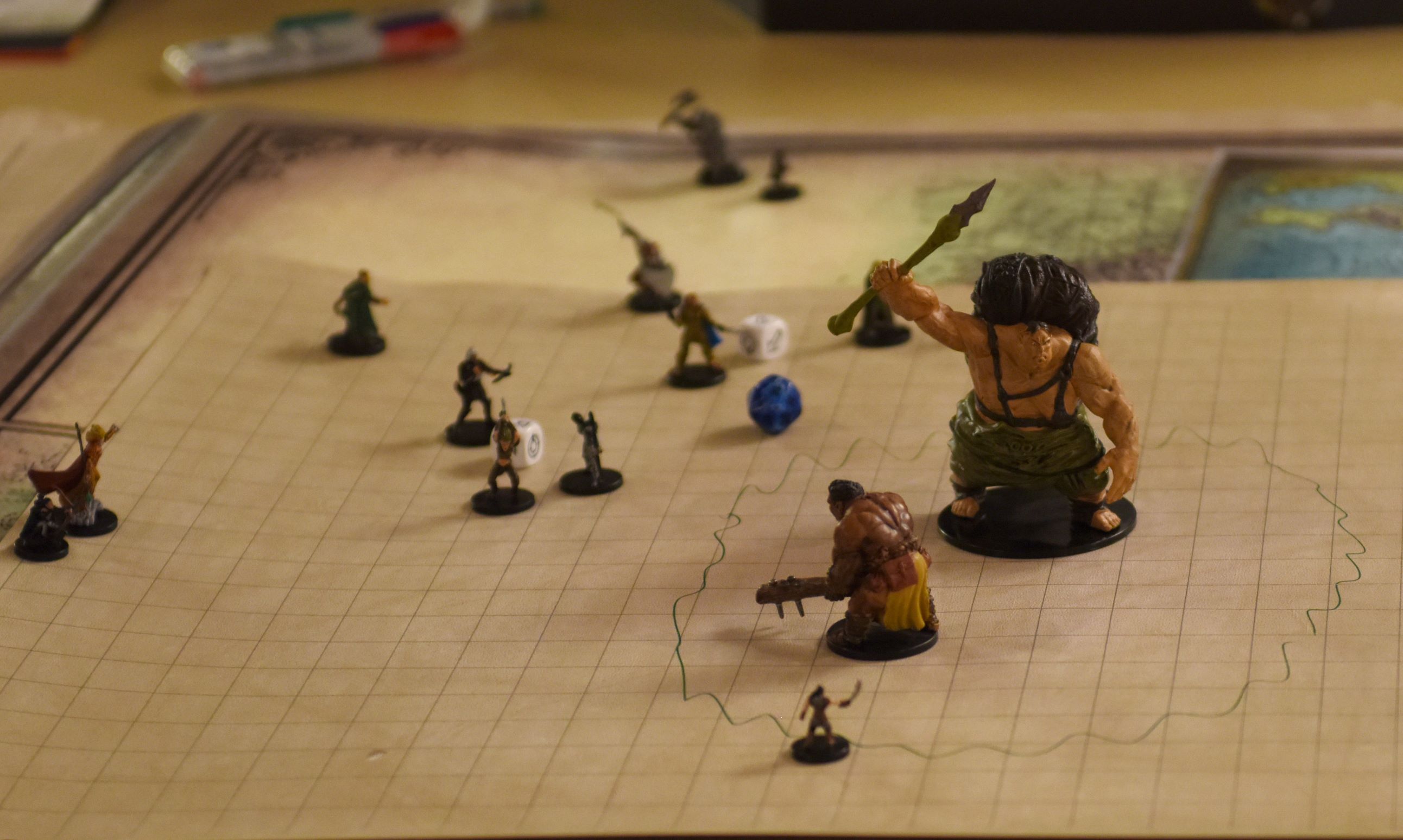Where’s the line between checking for traps as any good and cautious adventurer does, or as any paranoid murderhobo does? Today we consider some ways to hopefully help alleviate some of that pent-up, player paranoia.
Dear DovahQueen: My players always think I’m trying to trick them. They don’t trust any NPCs they meet. Every door is trapped, in their eyes, no matter how unlikely. I don’t really have a history of the bait and switch tactics in my games… so how can I get the team to quit being paranoid that the entire world is out to get them? —Wizard of Wonder
Dear Wizard: So, everyone who’s a veteran of our preferred hobby knows a few things. One: you kill trolls with fire or acid. Two: a big and mostly open room is going to have a boss in it. And three: every door and hallway you *don’t* check for traps in is *going* to have a trap in it. These tropes, and many others, are often so ubiquitous in games that they’ve nearly transcended convention and become something more kin to tenets of adventuring. Many of us are keenly aware of how meta-gaming happens, and how to avoid it, but some things are just deeply ingrained in the psyche of a player.
I want to start by telling you that, perhaps unsurprisingly, this paranoid behavior is likely not anyone’s fault. You’ve haven’t done anything wrong, and they’re really not doing anything wrong either. We’re all just products of the culture surrounding these games that we love and live in. I wish I had an answer as easy as “change this” or “try these,” but I don’t because I don’t believe there’s a magic bullet to rid us of all roleplaying woes. But, that’s not me saying I don’t think I have anything to offer you though either.
For a number of years now, I’ve been trying out a few methods to help get rid of another common attitude that I didn’t want to see in my games. For me, that was players knowing they have some form of plot armor and behaving as such. I didn’t like that every time I said “roll initiative,” they knew they had permission to bludgeon through the encounter to scoop up that sweet, sweet XP from the resulting corpses. To address this, I attempted to take a long, hard look at what factors were in play that encourages such behavior. I removed XP and tied level ups to plot points; I stopped balancing encounters and warned my players—at the start of each session—as such so they would have to stop and think about each situation before they decided to trade blows or not; and I developed a system where every time they went below their HP max, they received a scar or disfigurement meant to discourage combat for the sake of combat. For your situation, I don’t think turning the game into Dark Souls is going to do much to make the players less paranoid, but maybe there are some things we can tweak to encourage less paranoia.
I do think that your first, and maybe best, bet is to have a discussion with your players. Let them know that you’re aware of how commonplace traps and double crosses are in the stories that we’re all familiar with, but that that isn’t the kind of story you’re trying to tell; then remind them about all those hallways and locks that didn’t try to bite them. While it may be a player’s job to write a character that fits well into the story and world, it’s just as much the GM’s job to communicate how the players can do that.
That said, now you gotta make sure you *don’t* actually run cheap traps and double crosses out of nowhere. Your credibility goes all the way out the window the moment an unseen pressure plate depresses. I’m a player in a colleague’s game right now, and we make sure to stab literally every chest before we open it in case it’s a mimic. Normally, I wouldn’t condone such seemingly meta-behavior, but we’ve now been attacked by 2 chest-mimics that we didn’t catch, 1 book-mimic, and 2 other chest-mimics that we did stab first. It’s not paranoia if you’re right!
This isn’t me saying not to use *any* traps or to never betray the party with a beloved NPC. Instead, try reconsidering how you use such hazards. If noticing traps is locked behind a die roll, players are going feel encouraged to make as many die rolls as possible. Instead, consider just flat out telling them, “You see a bunch of boulders in the ceiling held back by a flimsy board.” They still might have to find the triggering mechanism, and they might still need to make some rolls, but now they don’t have to be broadsided by it; they have a clue. They can make a decision and deal with the aftermath. Consider freely giving them a clue to every trap if for no other reason than to foster that trust in their GM. The same can be said for NPCs that are secretly gonna side with the bad guys. Put some foreshadowing in there that they can look back on and feel dumb for not seeing. On second thought, maybe don’t do that. I feel like then those players are going to interrogate every named NPC they meet. And as mentioned above, tell your players that traps are going to have announced clues. Be as transparent as possible if you intend to gather their trust.
Think about these as some starter suggestions to get your brain storming. I highly encourage you keep thinking critically about some of the methods that you use in game and about some of the behaviors those methods might encourage. Don’t be afraid to slay sacred cows or try out a new house rule if you feel like it could help immerse your players. But also, remember that this behavior isn’t likely caused by anything you did, and it’s possible that the behaviors are just too deeply ingrained. Give it your best, but also cut yourself some slack if it doesn’t work.
You can request RPG advice by sending an email to deardovahqueen@gmail.com or by message on Facebook.







